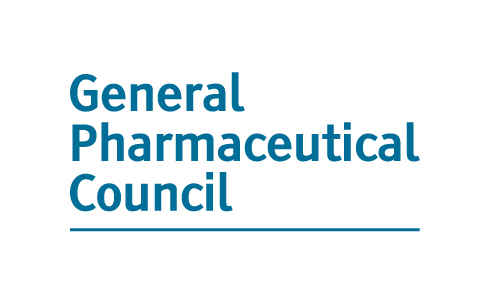Equality, Inclusion and the Future of Pharmacy
)
As we celebrate Pride month and reflect on global events of the past year – the inequities that exists in society and the often-catastrophic impact on those affected have never been more evident in recent history. Equality, diversity and inclusion are lacking and as a result, uncomfortable conversations are increasingly taking place, difficult questions being asked and truths exposed.
In an era that no longer accepts being a silent bystander, businesses are holding themselves accountable and everyday people are taking small steps at the grassroots level to make what they hope will be big changes for the future. Many industries are having to take a closer look at the role they’re playing, and pharmacy is a great example of this.
From a lack of representation in the workplace to the distressing impact of health inequalities amplified by the onset of Covid-19, pharmacy professionals are not only realising the importance of doing the right thing, but that the commercial benefits linked to this are actually good for business.
Where are we now?
With issues of inequality being reported across the pharmacy industry, many companies are putting plans in place to ensure their leaders and teams are promoting equality, valuing diversity and being inclusive in all work practices – but there’s no denying the long road ahead…
The stark reality
According to results of the latest Royal Pharmaceutical Society (RPS) Survey, a sizeable 83% of respondents felt it was important for RPS to strategically support I&D (Inclusion and Diversity) – sending a crystal-clear message about the current state of affairs. Often overlooked when it comes to I&D, disability was flagged as the area needing the most support and improvement, followed closely by age and race. Disability was also perceived to be the biggest barrier to working in pharmacy, with other barriers ranging from age and pregnancy to maternity status. More than half (66%) of respondents overall felt there were barriers to working in the profession and as a result, RPS have set clear objectives in a plan to address concerns and overcome these specific obstacles.
An investigation by The Pharmaceutical Journal also revealed potential disparities that exist within the pharmacy degree in the UK. For the first time, national data was uncovered indicating the proportion of black, Asian or minority ethnic (BAME) pharmacy students obtaining an upper-class degree were 12% lower than their white peers. It’s also worth noting the BAME definition itself incorporates a very large group of people, and the needs of the individuals within this broad definition can be very different, which isn’t always considered.
In addition to negatively affecting pharmacists, health inequality issues can trickle down, also impacting the members of society they serve. For example, while some LGBTQ+ people may be open about their identities with healthcare professionals, others may fear discrimination or experience barriers to accessing services because of their sexual orientation or gender identity.
A legal framework
The Equality Act was brought into effect in 2010 and unites over 116 separate pieces of legislation into one single Act – protecting everyone in Britain against unfair treatment in a number of situations – including at work – from direct and indirect discrimination, harassment and victimisation.
There are nine protected characteristics under The Equality Act:
-
age
-
disability
-
gender reassignment
-
marriage and civil partnership
-
pregnancy and maternity
-
race
-
religion or belief
-
sex
-
sexual orientation
While some feel parts of the Act should be reviewed due to complexities in relation to the discrimination experienced e.g., on the basis of multiple protected characteristics, it’s the bare bones upon which industry leaders and professionals need to do the work required to promote a fair and more equal society.
What needs to change?
Organisations need to advocate for new practices in order to create a culture of belonging, so members of these often-marginalised groups can feel valued, included, visible and empowered to seek career progression. With so many minority groups impacted by inequality and a plethora of ways in which they’re affected, pharmacists and their teams need to unravel the complexities at hand and commit to long term change.
Given the opportunity, many are already speaking up… RPS’ Action in Belonging, Culture and Diversity (ABCD) meetings give members the space to talk about inclusion and diversity and raise key issues they’d like addressed. Looking at the key points previously raised, it’s clear pharmacists are being affected at every stage of the career process – from recruitment:
“Greater transparency is needed from NHS, employers and pharmacy organisations to create fair and transparent processes in recruitment to leadership roles, steering groups, project teams, advisory groups and professional recognition processes.”
…to the day-to-day:
“We want the freedom to speak up about the discrimination we experience and witness without fear of repercussions, being dismissed or considered a troublemaker by employers.”
Showing your support
As is the case with many complex social issues needing reform, awareness and education is a large piece of the puzzle, along with making actionable plans that veer away from ‘performative gestures’ and put the rights and wellbeing of people first. Individuals must look at the helpful practices that can be implemented within their teams, and leaders need to set the example and create a safe space for people to talk.
With an aim to work collaboratively to ingrain inclusive pharmacy professional practice into everyday care for patients and members of the public, Chief Pharmaceutical Officer at NHS England, Dr Keith Ridge, announced in March of this year a Joint National Plan for Inclusive Pharmacy Practice – together with RPS, Association of Pharmacy Technicians UK (APTUK) and other industry partners. They’re encouraging pharmacy professionals across all sectors of healthcare to engage with and implement this plan in whatever way works best for their teams, so becoming more inclusive becomes part of everyday practice.
How will we know when we’re truly inclusive? When every person in pharmacy feels they genuinely belong. By not leaving any group behind, it’s only then individuals will feel they can truly be themselves and thrive.
References:
The Royal Pharmaceutical Society (RPS), <https://www.rpharms.com/recognition/inclusion-and-diversity/advocacy-asks>
The Royal Pharmaceutical Society (RPS), June 2020, Improving Inclusion and Diversity across our profession: our strategy for pharmacy 2020 – 2025, <https://www.rpharms.com/LinkClick.aspx?fileticket=plJ2cLMj2H4%3d&portalid=0>
Equality and Human Rights Commission, <https://www.equalityhumanrights.com/en/advice-and-guidance/your-rights-under-equality-act-2010>
The Pharmaceutical Journal, <https://pharmaceutical-journal.com/article/opinion/it-is-time-to-take-down-the-barriers-faced-by-black-pharmacists>


)
)
)
)
)
)
)
)
)
)
)
)
)
)
)
)
)
)
)
)
)
)
)
)
)
)
)
)
)
)
)
)
)
)
)
)
)

.png/fit-in/500x500/filters:no_upscale())
)
)
)
)
)
)
)
)
)
)
)
)
)
)
)
)
)
)
)
)
)
)
)
)
)
)
)
)
)
)
)
)
)
)
)
)
.png/fit-in/1280x9999/filters:no_upscale())
)
)
)
)
)
